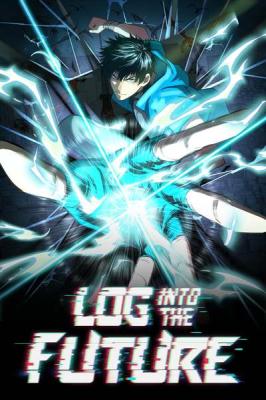There’s a peculiar beauty in stories that promise eternity and then get lost inside their own loop. Log Into the Future begins with the swagger of revelation: a martial artist hurled ten thousand years ahead, returning armed with the distilled wisdom of humanity’s final days. It’s a concept so clean it feels inevitable, and for a while, the series moves with the confidence of something that knows exactly what it wants to be.
The first arcs read like polished machinery: panels snap cleanly from one clash to the next, color gradients gleam with manufactured precision, and the rhythm never falters. You sense the appeal instantly with momentum as pleasure, escalation as comfort. Every few chapters, the protagonist surpasses another limit, masters another art, faces another threat already fated to be undone.
What the series never quite grasps is that motion alone isn’t life. Its battles are legible but seldom alive; they describe impact rather than emotion. Each victory lands on schedule, choreographed not by struggle but by arithmetic. Even the monsters look dutiful, fulfilling a quota of defeat before clearing the stage for the next act of ascension.
Still, there are moments...small, luminous moments, when the concept breathes. When a decision in the present echoes centuries forward, when we see consequence shimmer faintly against inevitability, Log Into the Future becomes something more than a power fantasy. It becomes a meditation on the loneliness of progress: what it means to keep perfecting oneself in a world that no longer exists to witness it.
Then, just as quickly, the story forgets its own insight. A harem subplot intrudes, a familial scene strains credulity, and the tension collapses back into formula. The manhua keeps promising transcendence but settles for repetition—the paradox of many long-running series that mistake quantity for permanence.
Yet for all its mechanical precision and emotional anemia, Log Into the Future isn’t cynical. It believes, perhaps too earnestly, that human ambition can still mean something even after the world has ended. That belief, naive as it is, gives the work its faint heartbeat. You keep reading not because you expect surprise, but because its certainty feels strangely consoling.





